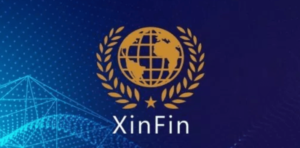The idea of exchange and money has gone through major changes from the Stone Age when barter was the ideal form of trading, to the present day, where digital money is taking over traditional forms of payment. Technological innovations have spurred a different revolution for the payments and money industry, with new and innovative country-wise, regional, and global payment solutions springing up almost every single day. Though the entire ecosystem has witnessed fast improvements, thanks to technology, there are still a lot of problems that need solutions.
The global payment processing landscape is bedeviled with insecure systems, inefficient payment gateways, and the lack of a unified system that seamlessly manages the payment operations of businesses and individuals across the globe. This does not only prevent participants in this space from reaching their global goals, it also breeds high operational risks, prevents the automation of repetitive tasks, and ultimately reduces productivity.
Another fundamental problem with the payment processing ecosystem is the centralization of operations, which according to Emin Gün Sirer, a distributed systems researcher at Cornell University, giving such power, especially when it comes to money, to private individuals and institutions “not only has implications for all of us regular people, but it also has implications for national security”.
XinFin has a solution
XinFin came into the blockchain ecosystem to solve many problems, from project financing to global payment processing. It achieves these goals through its enterprise-ready hybrid blockchain ecosystem that bridges the gap between private and public blockchains and provides an environment where cryptocurrencies and blockchains connect and transact with fiat and current business processes.
One remarkable solution by XinFin is the XDC Wallet, geared towards institutions and individuals in need of a cutting-edge solution for an old-age problem – global payment processing. The XDC is an e-wallet solution built on XinFin’s XDC hybrid blockchain. Apart from serving as a safe haven for XDC tokens, it seamlessly integrates with many enterprise payment systems, allowing businesses and individuals to store and use cryptocurrencies and fiat at the same time.

The Multi-signature capabilities of the XDC Wallet also enable the creation of secured addresses and smart contracts. It allows institutions and individuals to undertake peer to peer, cross-chain transactions. Additionally, businesses can integrate the e-wallet with current business systems, allowing for smart contracts to work with current business and financial software to achieve fast, cheap, and interoperable payment processing on a global scale.
The wallet is supported by an advanced XDC01 protocol, which, together with the XDC tokens, ensures that businesses are able to carry out cross-border financial transactions backed by security and reliability. It also removes the many international fund transfer intermediaries, fastracking transactions and taking care of payments faster, so businesses can focus on other tasks.
The market XinFin is disrupting
The global payment landscape is a huge industry that has yet to rise. From M-Pesa in Kenya to AliPay in China, peer to peer systems seems to be the ideal platforms that the customer prefers. These trends are equally shaping the expectations of customers, and with the blockchain’s ability to enable fast, secure, and completely peer to peer payment systems, the world is waiting to welcome workable solutions.
Research from the latest McKinsey’s Global Payments Map Data estimates that the global payment industry will be worth $2 trillion by 2020, with an annual growth rate of about 7 percent from 2017 through to 2020. Part of this market is digital payments, which BNP Paribas and Capgemini estimates will reach $726 billion by 2020.
Explore this landscape with XinFin by signing up for your XDC Wallet and experience fast, secure, and seamless global payments.








